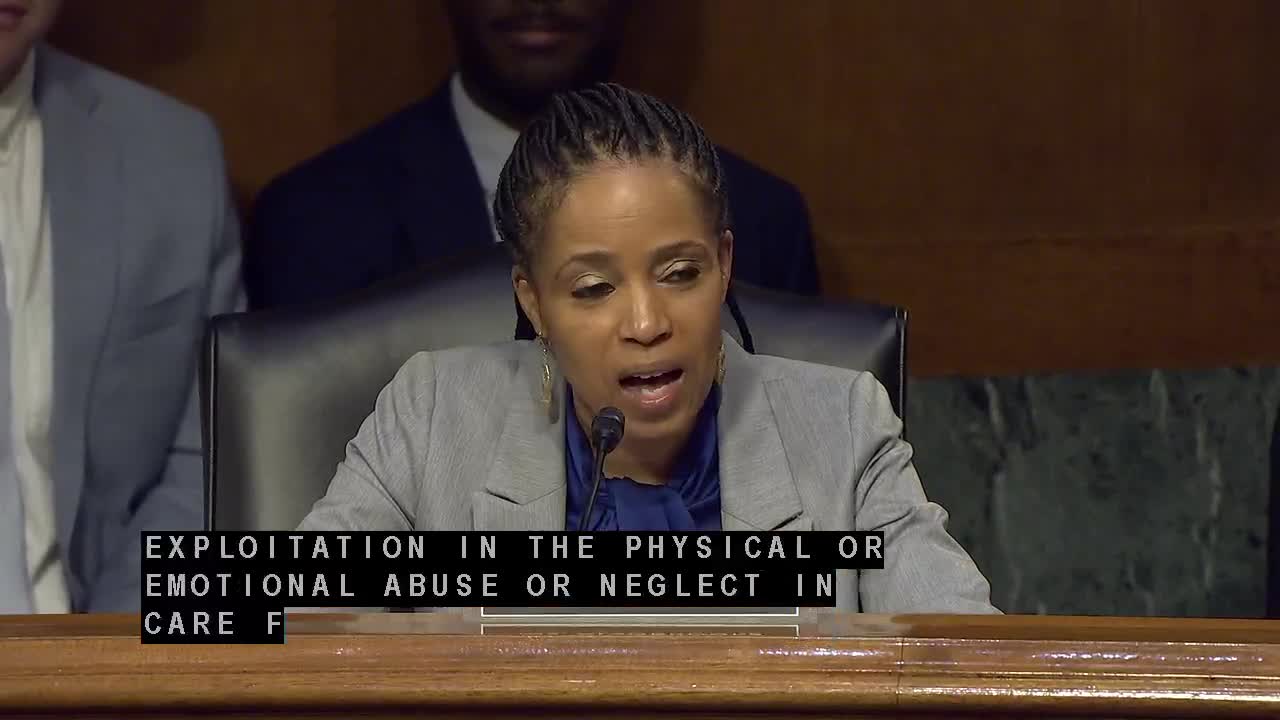Senator Questions Impact of Eliminating Administration for Community Living on Elder Justice
July 30, 2025 | Aging (Special), Special, Select and Other Committees - House & Senate, Congressional Hearings Compilation
This article was created by AI summarizing key points discussed. AI makes mistakes, so for full details and context, please refer to the video of the full meeting. Please report any errors so we can fix them. Report an error »

The US Aging (Special) Committee convened on July 30, 2025, to address the pressing issue of elder abuse and neglect, with a focus on the implications of proposed changes to federal support systems for older adults. The meeting highlighted the concerns of committee members, particularly those who identify as part of the "sandwich generation," balancing the care of both aging parents and their own children.
A key speaker shared personal experiences as a former prosecutor, emphasizing the alarming rise in financial exploitation targeting seniors. This speaker recounted instances of scams, such as fraudulent calls claiming that a grandchild was in danger, which often lead to vulnerable seniors being coerced into sending money. The urgency of these issues was underscored by a recent visit to a senior facility in Maryland, where financial exploitation was identified as the primary concern among residents.
The discussion turned to the proposed elimination of the Administration for Community Living (ACL) by the current administration, which has raised significant alarm among committee members. The ACL is recognized as a vital federal agency dedicated to protecting the rights and well-being of older adults. Concerns were voiced regarding the potential loss of institutional knowledge and expertise in elder justice policy, as approximately 40% of ACL staff had received layoff notices. The implications of this restructuring could severely impact the enforcement of elder justice programs across the country.
The committee also reflected on lessons learned from the COVID-19 pandemic, during which Congress allocated $100 million in emergency funding for elder justice initiatives. Members expressed concern about the risks of deprioritizing elder justice programming in future budgets, fearing that valuable resources and support systems for vulnerable seniors could be lost.
The meeting concluded with a call for continued advocacy and support for elder justice initiatives, emphasizing the need to protect older adults from abuse and exploitation in an increasingly challenging environment. The committee plans to further explore these issues and seek solutions to ensure the safety and security of seniors in the community.
A key speaker shared personal experiences as a former prosecutor, emphasizing the alarming rise in financial exploitation targeting seniors. This speaker recounted instances of scams, such as fraudulent calls claiming that a grandchild was in danger, which often lead to vulnerable seniors being coerced into sending money. The urgency of these issues was underscored by a recent visit to a senior facility in Maryland, where financial exploitation was identified as the primary concern among residents.
The discussion turned to the proposed elimination of the Administration for Community Living (ACL) by the current administration, which has raised significant alarm among committee members. The ACL is recognized as a vital federal agency dedicated to protecting the rights and well-being of older adults. Concerns were voiced regarding the potential loss of institutional knowledge and expertise in elder justice policy, as approximately 40% of ACL staff had received layoff notices. The implications of this restructuring could severely impact the enforcement of elder justice programs across the country.
The committee also reflected on lessons learned from the COVID-19 pandemic, during which Congress allocated $100 million in emergency funding for elder justice initiatives. Members expressed concern about the risks of deprioritizing elder justice programming in future budgets, fearing that valuable resources and support systems for vulnerable seniors could be lost.
The meeting concluded with a call for continued advocacy and support for elder justice initiatives, emphasizing the need to protect older adults from abuse and exploitation in an increasingly challenging environment. The committee plans to further explore these issues and seek solutions to ensure the safety and security of seniors in the community.
View full meeting
This article is based on a recent meeting—watch the full video and explore the complete transcript for deeper insights into the discussion.
View full meeting